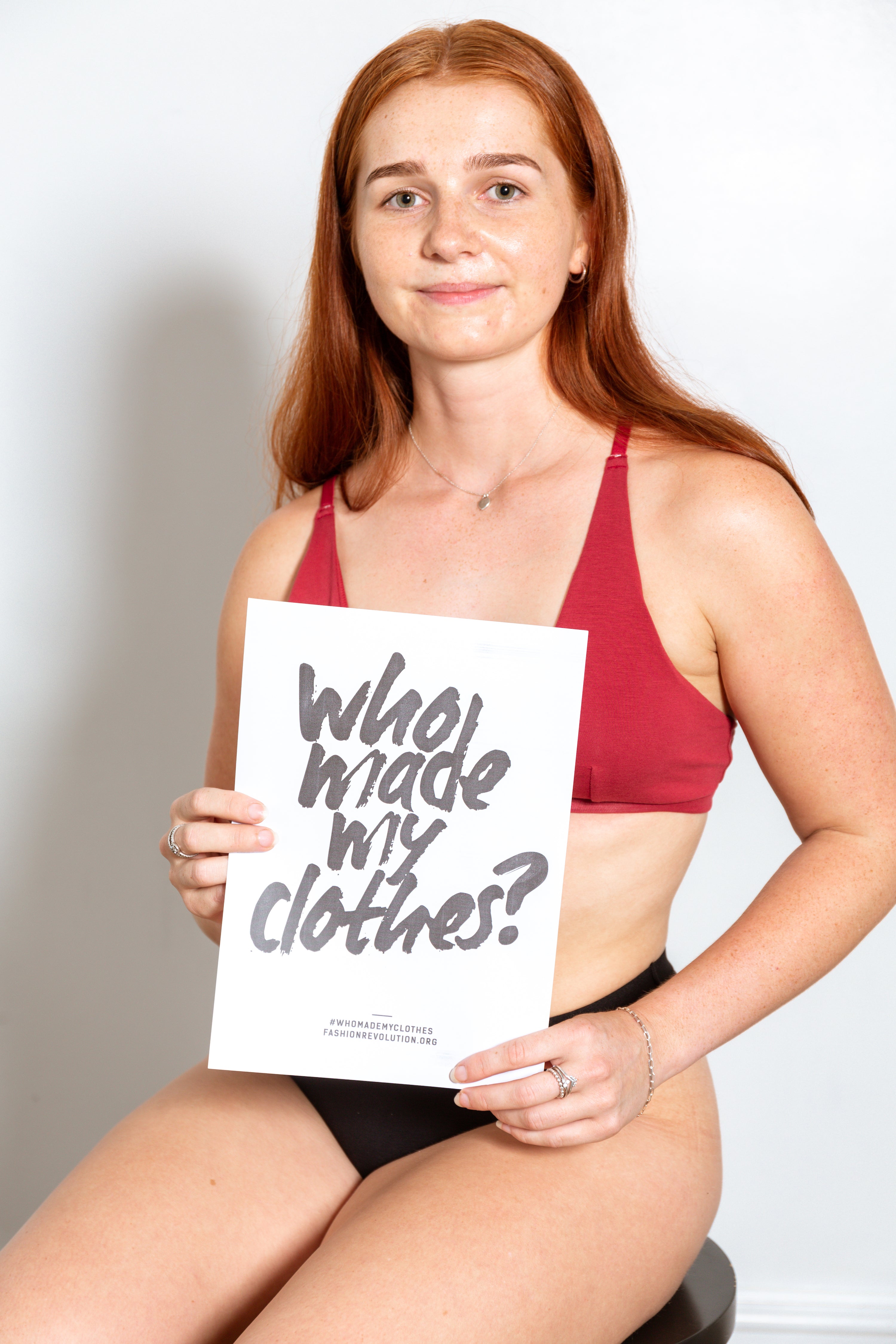No Products in the Cart

Name: Meg Fisher
Occupation: Sustainable Fashion Designer/Founder of FIBR Studios
Age: 23
___
Where were you born? What is your heritage?
I was born in Sydney, Australia but have an English and Burmese background. I have spent a lot of time in the UK.
Tell us a little bit about what you do?
Primarily I work as a fashion designer and consultant for small to medium sustainable fashion brands helping them get from idea to production. This work led to me founding FIBR Studios in 2020 which provides resources and templates for brands to make the sampling and production process as streamline as possible. Good design starts from the idea and I work with brands to solve problems in the industry rather than simply bringing more clothing into the world. At the tech pack process, decisions like fabrication, types of finishes and packaging can make a huge impact on the environment so I work with brands to ensure we are considering inputs and outputs in every aspect of their brand.
What does the Fashion Revolution movement mean to you personally?
For me, Fashion Revolution was a huge wake up call as not only a designer but a consumer. I first heard of it when I was working for an ethical manufacturer in the UK and we quickly used Fashion Revolutions resources to educate ourselves on the harsh reality of the fashion industry, specifically manufacturing. For me, the Fashion Revolution movement means awareness, transparency and responsibility. The information provided and events run during the FR week are powerful and accessible to brands of all sizes, so there is no excuse to not get involved and take steps towards change.
This year's Fashion Revolution theme is all about fashion, money, power - do you think the fashion industry has a positive or negative impact on international power dynamics? Why?
The fashion industry itself is stereotypically illusive and hard to access and is often built on smoke and mirrors to promote ideations about wealth, status and power. The messages put out by large fashion houses are primarily negative as they promote the divide between rich and poor. The irony of it is the people behind the creation of luxury goods are working below the poverty line in unethical conditions. Luxury brands have little to no transparency in order to maintain this power dynamic between consumer and brand. Brands promoting a luxury lifestyle that is unattainable whilst exploiting the environment and workers is slowing down any positive progress of the fashion industry because smaller or competing brands might think “If XYZ isn’t doing it, why should I?”.
How do you think we could harness the fashion industry to have a fairer and more balanced global economy?
For me, I believe any change needs to start with not just the brands but the consumer. This is because the fashion industry has made clothing so cheap and accessible that it will be extremely difficult to increase prices. However, an increase in prices will be natural when the price of labor (from ethical manufacturing) and higher quality raw materials are used. Therefore, we need a mindset shift through education and awareness. Brands becoming more transparent is a start as well as consumers beginning to value quality over quantity. Schools teaching sewing and mending is an excellent start as most teens and young adults (who consume fast fashion) do not associate clothing with human production.
What do you normally wear every day?
Mostly 5 outfits on rotation! Simple high quality basics that I have worn for years that mix and match. Quite plain but does the job!
What is your favourite piece in your wardrobe?
My favourite piece of clothing holds sentimental value as it is the first piece I took from idea to production. It is a pair of sports leggings that I designed, sourced materials, sampled and oversaw production for. I love that I know every aspect of how it was made and remember the seamstress who created it.
Do you have any favourite sustainable brands, or favourite second-hand shops?
One of my favourite sustainable brands is Everlane for not just its quality but its transparency. I believe they set such a great example on how a brand can create value for their customers through being completely transparent with their production costs. I also take inspiration from Stella McCartney as she is a key innovator in the industry, especially when it comes to using emerging textiles.
Do you have a style icon?
My style icon is Audrey Hepburn, for her elegance and for the exceptional tailored pieces she wore. I wish the fashion world would embrace more tailored pieces and less loungewear haha!
What is your favourite style of Mighty Good Basics?
For comfort and style, you can’t go past the boy leg pants. I love the cut of the style and you can’t get softer organic cotton either!